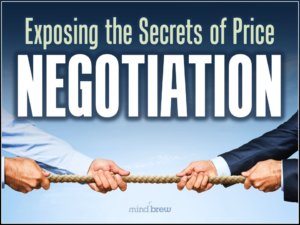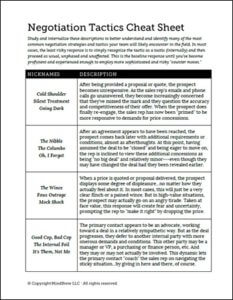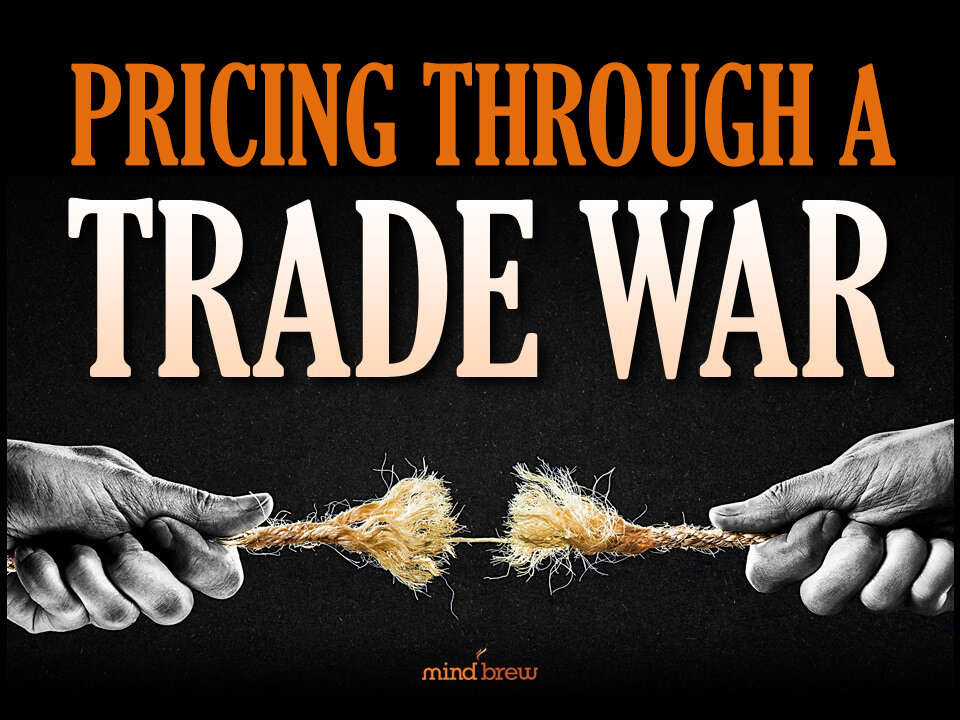When governments start rewriting the rules of international trade—introducing sweeping tariffs, imposing drastic sanctions, remaking long-standing agreements, or tossing up entirely new compliance requirements—you can bet one thing will follow as surely as the sun setting in the west: chaos.
Confusion abounds. Management teams scrabble. Supply chains wobble. Forecasts become little more than guesses. And in the middle of all of that, we still have to negotiate good deals!
Whenever this kind of market upheaval and disruption is foisted upon us, we can expect to hear a predictable chorus from across the negotiating table:
“We’re under a lot of pressure because of these new tariffs.”
“This trade war has really thrown our budgets for a loop.”
“With all this uncertainty, we just have to get better deals.”
And let’s not forget this old standard:
“Corporate is telling us to tighten our belts—just in case.”
It’s understandable and makes a good deal of sense. After all, disruptions like this do indeed create big problems and real headaches. Some companies genuinely do not know what their costs will be next quarter. Others are facing supply shortages or new duties and fees that are squeezing their margins in a big way.
But the unvarnished truth is that not every plea for concessions or pricing relief is rooted in actual hardship. Some are just clever negotiation ploys, timed perfectly to catch us off balance and in a sympathetic mood.
Market Turmoil Is a Negotiator’s Playground
The beauty of market disruption and chaos—from a buyer’s perspective—is that it’s messy, murky, and wide open to interpretation. That makes it the perfect backdrop for vigorous negotiation. Buyers can start with a little truth, mix in a whole lot of ambiguity, and hope that we’re too desperate, too distracted, or too sympathetic to push back.
Buyers know full well that sellers won’t have clear visibility into how trade policy changes are really impacting each individual buyer. They also know that sales reps, under pressure to close deals in a highly volatile and unpredictable market, are more likely to accept even the shakiest justifications for concessions.
Suspicion Is Just Smart, Not Paranoid
This is why it’s essential to approach negotiations during times of market upheaval and chaos with what we call constructive skepticism. We don’t need to accuse our buyers of lying or stretching the truth—but we also shouldn’t be accepting every excuse or rationale at face value.
In our “Exposing the Secrets of Price Negotiation” training session, we dive into the negotiation power imbalance that typically favors buyers. We break down the subtle, and not-so-subtle, tactics buyers use to chip away at our pricing and deal margins. And we provide a cheat sheet to help identify these tactics in action—because once you see them, they lose their magic and we stop falling for them.
One of the golden rules we discuss?
“Assume every claim is part of a negotiation strategy
until you have evidence to the contrary.”
Yes, that might sound a little suspicious or cynical. But suspicion is not the same as paranoia. It’s about being prudent. And in an environment where buyers are trained to use uncertainty to their advantage, prudence is a competitive edge.
Separating the Real from the Convenient
When trade policy disruptions and market turmoil are cited as reasons for needing additional concessions and discounts, we should step back and think about a few things:
- Are these claims both specific and verifiable?
- Does the buyer’s situation logically connect to the justifications they’re offering up?
- Are other buyers in similar situations making the same requests—or is this unique?
From there, we can begin to classify what we’re hearing into one of three buckets:
- Legitimate and Material – The changes and disruptions are having a direct, measurable impact on the buyer’s business and purchasing ability.
- Plausible But Manageable – The disruptions are challenging, but they don’t prevent the buyer from proceeding under the current deal terms.
- Convenient Work of Fiction – It’s just a well-timed set of rationalizations and excuses aimed at securing more concessions and discounts.
Negotiation Discipline in Chaotic Conditions
When trade winds shift, maintaining discipline in our approach to price negotiations is more important than ever. It’s not about stonewalling buyers or refusing to acknowledge real challenges. It’s about refusing to panic and resisting the urge to make costly concessions just because someone uses the words “trade war” or “tariff” in a sentence.
Sometimes, the smartest thing we can do is just ask a clarifying question or two and watch the excuses fall apart. Other times, our best course of action is to simply acknowledge the chaos and upheaval with a seemingly sympathetic nod…and then proceed with the very same deal terms as before.
















